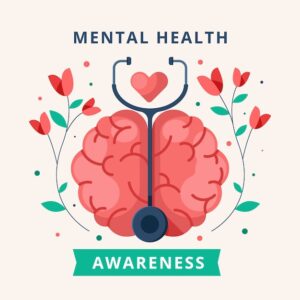What is Psychiatric Rehabilitation: Overview, Benefits, and Expected Results
Definition and Overview
Also referred to as psychosocial rehabilitation, psychiatric rehabilitation refers to the mental health discipline that involves providing all the resources needed to help mentally ill patients reintegrate themselves back to society. This is different from de-institutionalization wherein patients with mental health problems are not allowed to leave the hospital or institution.
Psych rehab requires a multidisciplinary approach to be successful and it involves the following:
Recovery – One of the first steps of rehabilitation is to guarantee the recovery of patients. While some of them may not completely recover, the rehab will help them cope with their symptoms more effectively.
Empowerment – Once the patients go back to society, they will be subjected to the standards and expectations of others. For many of them, it will be difficult, more so if others learn of their background and predicament. However, when the patients are empowered and motivated, they are more likely to sustain themselves and even rise above these expectations.
Collaborative – There is more than one professional helping these patients to recover and move forward from their illness. In fact, most of those that offer rehabilitation programmes are organizations with teams that are composed of psychiatrists, social workers, and community-trained workers, to name a few.
Personalized – Rehabilitation programmes provided to patients are according to a set of standards, guidelines, and existing methods that can be modified according to the needs, skills, and overall personality and outlook of the patient. Rehab cannot succeed without the patient’s active participation and interest. The rehab is expected to focus on building up or reinforcing the innate strengths of these patients.
In the end, the goal of psychiatric rehabilitation is to give the patients hope, motivation, respect for oneself, as well as social, economic, and other types of skills so they can reintegrate themselves back to the society more efficiently and effectively.
Who Should Undergo and Expected Results
A psych rehab is intended for long-term mentally ill patients. A poor mental health is expected to deprive a person with the necessary set of skills to be fully functional, contributory, and supportive of a community. In the same manner, one has to live with the stigma that comes with having the health problem, which may only further force the patient to retreat and disassociate himself or herself from the rest.
The different signs and symptoms of mental health can also increase the risk of discord, conflict, and ineffective communication in the group where the patients belong. According to Psychiatry.org, a person with a mental health problem is more likely to:
- Withdraw from society and lose interest in others
- Lose the ability to concentrate or understand himself and others
- Sense a disconnection between himself and the environment
- Develop an illogical way of thinking
- Promote unusual, imaginary, and exaggerated beliefs
- Feel a sense of distrust and suspicion toward others
The success of the rehab significantly varies from one person to another as many factors come into play. One of which is the patient’s receptiveness or openness to newer or modified skills, as well as the chance to get back to society.
Nevertheless, patients can expect all throughout their rehab that:
- They will be respected.
- They will develop a new sense of belief in their capability to grow and learn.
- They will experience personal growth through continuous support and learning.
- The services or resources they need to recover quickly and effectively will be accessible.
- They will work alongside a diverse team that can address different areas of their needs and challenges.
- The will learn to make their own decisions and in the process, become empowered individuals.
- They can build their own support group in the community, including their family members, with the help of their rehab team.
- They will experience growth in various areas of their lives.
How Does the Procedure Work?
There are many considerations with regard to psychiatric rehabilitation, such as the needs and goals of the patients, the services that can be offered by the team, and the kind of mental health problem these patients have, to name a few.
Overall, the process begins by determining the goals or desired outcomes of the patient (person-centered approach). The role of the psychiatric team is to ensure that the patients will be guided in creating their objectives for themselves based on their knowledge, expertise, and their assessment of the patients.
The team then proceeds to assisting patients in determining the steps they need to take to achieve their specific objectives. They will also present the resources that will be helpful and will be unique to the circumstance (individualized approach).
Typically, psych rehab programmes offer the following;
- Health and wellness support including nutrition or diet
- Symptom relief management through the used of correct medications
- Reduction of stress and distress through different techniques including meditation
- Introduction to the right support groups
- Building up of the patient’s own support group that can be composed of other patients in rehab, family, friends, and even colleagues at work
- Medical services such as consistent long-term counseling and accessible physician care (including urgent and emergency care)
- Legal assistance
- Education through enrollment in vocational schools or colleges
- Work placement
- Housing such as apartment living or group homes
The team also provides:
- Necessary living skills like personal care, home safety, travel safety, and life planning
- Programs and therapies that enhance the patient’s social and technical skills
- Financial assistance
- All other resources that might be needed by the patient such as those related to taking up hobbies, health insurance, and financial accounts (e.g., bank accounts)
Once the resources have been identified and the skills are already taught to the patients, the team’s responsibility then shifts to monitoring. The communication and interaction between the patient and the team should be long-term, consistent, and continuous. Both should be able to modify their approaches to ensure better outcomes.
Possible Complications and Risks
The risks come from the fact that it’s not a one-size-fits-all approach, as many factors have to be considered. There are various areas that need to be worked on and even if just one fail, the whole programme will also fail.
Further, patients will depend largely on the team during the first few phases of the rehab. However, a good number of psychiatrists are trained in hospitals, not in community setting, so they may not have the right set of skills to help the patients 100%.
References:
American Psychiatric Association. Diagnostic and Statistical Manual of Mental Disorders. 5th ed. Arlington, VA: American Psychiatric Publishing. 2013
American Psychiatric Association. Practice Guideline for the Treatment of Patients with Major Depressive Disorder. 3rd edition. October 2010. Available at: http://psychiatryonline.org/pb/assets/raw/sitewide/practice_guidelines/guidelines/mdd.pdf Accessed: March 10, 2014
/trp_language]
What is Psychiatric Rehabilitation: Overview, Benefits, and Expected Results
Introduction
Psychiatric rehabilitation is a holistic approach to supporting individuals diagnosed with mental health conditions in their recovery journey. This treatment approach focuses on empowering individuals to maximize their potential, develop skills, and regain independence after experiencing mental health challenges. By combining therapeutic interventions, social support, and vocational training, psychiatric rehabilitation aims to improve individuals’ overall well-being and help them lead meaningful lives. In this article, we will provide an overview of psychiatric rehabilitation, discuss its benefits, and explore the expected results for individuals undergoing this treatment.
Overview of Psychiatric Rehabilitation
Psychiatric rehabilitation is a recovery-oriented approach that recognizes the potential of individuals with mental health conditions to lead fulfilling lives. It emphasizes the individual’s strengths, abilities, and personal goals rather than solely focusing on their symptoms or limitations. The key principles of psychiatric rehabilitation include:
1. Individualized Care: Psychiatric rehabilitation programs are tailored to meet the unique needs and goals of each individual. Treatment plans are developed collaboratively, taking into account the person’s preferences, strengths, and challenges.
2. Holistic Approach: Psychiatric rehabilitation addresses various aspects of an individual’s life, including mental health, physical health, social relationships, housing, education, and employment. It aims to improve overall well-being and functioning in all areas.
3. Recovery Focus: The ultimate goal of psychiatric rehabilitation is to support individuals in their recovery journey. This entails helping them regain control over their lives, manage symptoms effectively, and develop the skills needed to pursue their goals and aspirations.
4. Community Integration: Psychiatric rehabilitation emphasizes the importance of social inclusion and community integration. It encourages individuals to participate in community activities, build supportive relationships, and reintegrate into society.
5. Evidence-Based Interventions: Psychiatric rehabilitation incorporates evidence-based interventions, therapies, and practices that have been proven effective in supporting individuals with mental health conditions. These may include psychoeducation, cognitive-behavioral therapy, skills training, and supported employment.
Benefits of Psychiatric Rehabilitation
Psychiatric rehabilitation offers a range of benefits to individuals with mental health conditions. Some of the key benefits include:
1. Improved Functioning: Psychiatric rehabilitation helps individuals enhance their functional abilities, such as managing daily activities, developing problem-solving skills, and improving communication and social interaction skills.
2. Increased Independence: By focusing on skill development and empowerment, psychiatric rehabilitation enables individuals to become more self-reliant and independent. They learn strategies to cope with their symptoms, make informed decisions, and effectively manage their lives.
3. Enhanced Quality of Life: Participating in psychiatric rehabilitation can significantly improve an individual’s overall quality of life. By addressing various aspects of well-being, such as mental health, physical health, housing, and employment, individuals experience greater satisfaction and fulfillment.
4. Reduced Hospitalization and Relapse Rates: Psychiatric rehabilitation aims to prevent or minimize relapses and hospitalizations. Through ongoing support, education, and skill-building, individuals learn how to better manage their symptoms and cope with stress, reducing the likelihood of crisis situations.
5. Increased Social Integration: Psychiatric rehabilitation helps individuals build supportive relationships, establish connections with others who have experienced similar challenges, and increase their involvement in community activities. This social integration promotes a sense of belonging and reduces feelings of isolation and stigma.
Expected Results of Psychiatric Rehabilitation
The expected results of psychiatric rehabilitation vary based on individual needs and goals. However, common outcomes include:
1. Improved Symptom Management: Individuals participating in psychiatric rehabilitation often experience better symptom management, such as reduced frequency and severity of symptoms. They learn coping strategies, utilize medication effectively, and develop skills to address their specific mental health challenges.
2. Increased Employment Opportunities: Psychiatric rehabilitation often includes supported employment programs that assist individuals in finding and maintaining employment. This can lead to increased financial stability, improved self-esteem, and a sense of purpose.
3. Enhanced Problem-Solving and Decision-Making Skills: Through various therapeutic interventions and skill-building activities, individuals develop effective problem-solving and decision-making skills. This allows them to handle challenges more independently and make choices that align with their personal goals and values.
4. Improved Relationships and Communication: Psychiatric rehabilitation helps individuals develop or improve their interpersonal and communication skills. This can lead to healthier relationships, increased social support, and better overall well-being.
5. Greater Self-Esteem and Self-Confidence: As individuals progress through psychiatric rehabilitation, they often experience increased self-esteem and self-confidence. Achieving personal goals, acquiring new skills, and receiving positive reinforcement contribute to a stronger sense of self-worth and empowerment.
In conclusion, psychiatric rehabilitation is an essential treatment approach for individuals with mental health conditions. It focuses on empowering individuals, enhancing their functioning, and promoting community integration. By providing individualized care, incorporating evidence-based interventions, and addressing various aspects of an individual’s life, psychiatric rehabilitation offers numerous benefits and can lead to positive outcomes. Through improved symptom management, increased independence, and enhanced quality of life, individuals undergoing psychiatric rehabilitation can achieve meaningful recovery and regain control over their lives.








Interesting read! #psychiatricrehabilitation